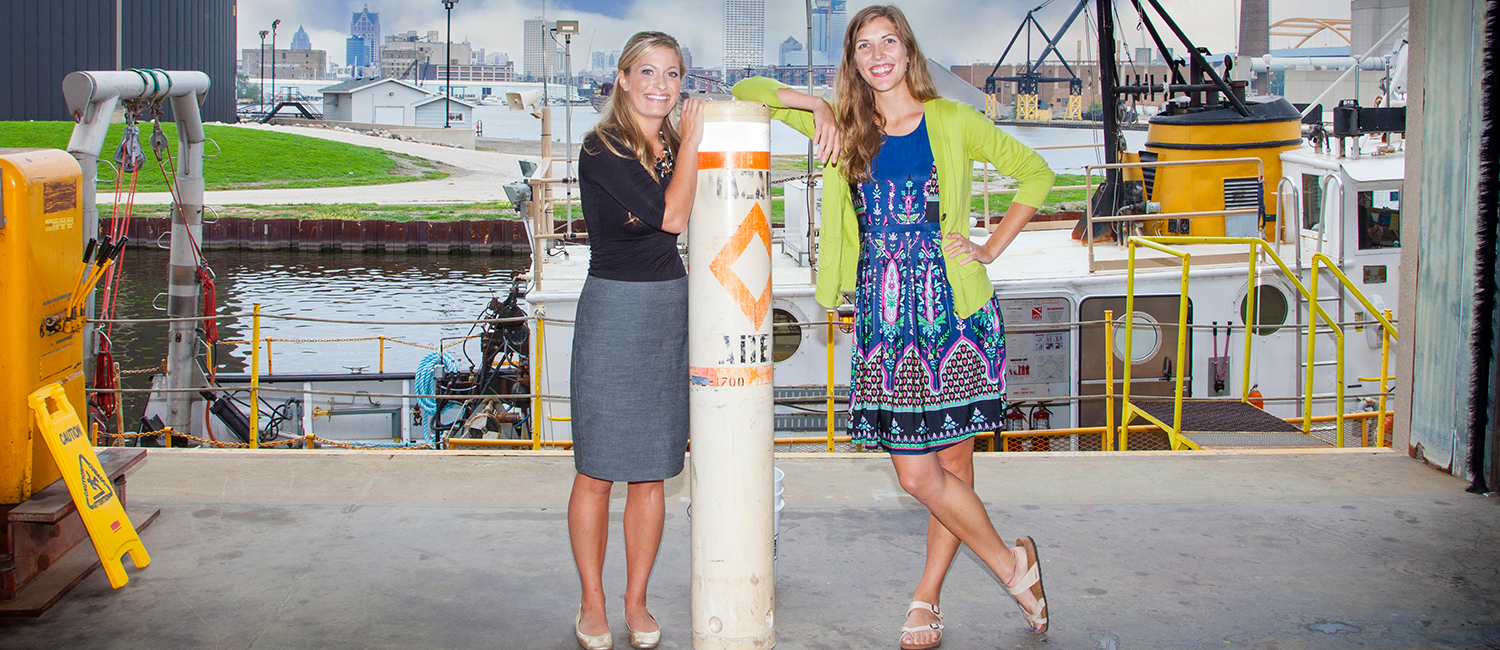
Diving into policy
UWM’s latest Knauss Fellowship winners put their water education to work in governmental support roles.
School of Freshwater Sciences students regularly plunge into the waters of Lake Michigan, Lake Winnebago and other freshwater environments. Many also have plunged into the world of politics and policymaking, thanks to Knauss Fellowships awarded by the National Oceanic and Atmospheric Administration’s Sea Grant program.
Shelby LaBuhn and Danielle Cloutier are the latest UWM doctoral students to receive the yearlong fellowships, which support work on water policy issues in either the executive or legislative branches of government.
LaBuhn will be at NOAA’s Climate Program Office in the Global Ocean Observing System group, helping maintain its observation network and organize two large meetings of international researchers. Cloutier will work in the office of Hawaii U.S. Sen. Brian Schatz, focusing on climate change and energy policy.
“The Knauss Fellowship is a great opportunity for students like Shelby and Danielle who have built their expertise in the sciences and want to help shape sound policy to preserve and protect our valuable water resources,” says Sandra McLellan, professor in the School of Freshwater Sciences.
LaBuhn and Cloutier bring UWM’s Knauss fellow total to six since 2011. They were the only two Wisconsin scholars chosen in 2016 for the program, which is named for former NOAA administrator John A. Knauss.
At UWM, LaBuhn has worked with J. Val Klump, Freshwater School dean, to determine the causes of oxygen depletion that causes dead zones in Green Bay and other waterways.
“Water was just a natural draw for me,” LaBuhn says. “There’s something about protecting the Great Lakes that’s really resonated with me.” And UWM has been the perfect place for her to start down that path.
“While I’ve been here at UWM, I’ve learned the research and worked on the boats, and I can do the fieldwork and analyze the data,” she continues. “Now I get to see how the research we do can influence policy.”
Cloutier chose UWM’s freshwater program because of its focus on environmental microbiology. “Most people that work in microbiology concentrate on the medical field,” she says. But McLellan, her mentor, works on water contamination, which piqued Cloutier’s interest.
As LaBuhn and Cloutier take these next steps in their educations, their professors are confident in the jobs they’ll do. “It takes a special individual to tackle these problems, one who is not afraid to think or work outside the box of their own specialty,” Klump says. “If we are going to solve these problems, it is going to take scientists like Shelby and Danielle to do it.”
LaBuhn says she’s already seen the effect of legislators and citizens becoming interested in the Green Bay research. “You collect all this data, and sometimes you don’t see it going anywhere,” she says, “but when you see it being used by people to make a change, that’s really gratifying.”